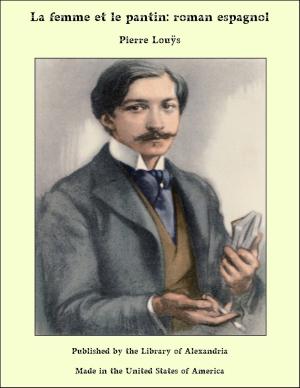Memoirs of the Reign of King George the Second (Complete)
Nonfiction, Religion & Spirituality, New Age, History, Fiction & Literature| Author: | Horace Walpole | ISBN: | 9781465625045 |
| Publisher: | Library of Alexandria | Publication: | March 8, 2015 |
| Imprint: | Language: | English |
| Author: | Horace Walpole |
| ISBN: | 9781465625045 |
| Publisher: | Library of Alexandria |
| Publication: | March 8, 2015 |
| Imprint: | |
| Language: | English |
It had been much expected that on the King’s return from Hanover several changes would be made in the Ministry. The Duke of Newcastle had, for some time before his attending the King thither, disagreed with the other Secretary of State, the Duke of Bedford, not only because he had brought the latter into the Ministry (his incessant motive of jealousy,) nor from the impetuosity of the Duke of Bedford’s temper, but from the intimate connexions that Lord Sandwich had contracted with the Duke. Lord Sandwich had been hoisted to the head of the Admiralty by the weight of the Duke of Bedford, into whose affection he had worked himself by intrigues, cricket-matches, and acting plays, and whom he had almost persuaded to resign the Seals in his favour. There had been a time when he had almost obtained the Duke of Newcastle’s concurrence; and if he could have balanced himself between the Duke and the Duke of Newcastle, one may, without wronging the delicacy of his political character, suspect that he would have dropped the Duke of Bedford’s confidence. But a blind devotion to the Duke’s inclinations, which he studied in all the negotiations of the war and the peace, protracting the one to flatter his command, and hurrying on the other when no part of Flanders was left for the Duke’s army, and himself was impatient to come over to advance his interest in the Cabinet, this had embroiled him with the Duke of Newcastle, and consequently cemented his old attachments. Mr. Pelham had, according to his manner, tried to soothe where his brother provoked, been convinced by trifles that his brother’s jealousy was solidly grounded, adopted his resentments, and promoted them. While the Court was at Hanover, Lord Sandwich had drawn a great concourse of the young men of fashion to Huntingdon races, and then carried them to Woburn to cricket-matches made there for the entertainment of the Duke. These dangerous practices opened Mr. Pelham’s eyes; and a love affair between one of his [relations] and a younger brother of the Duchess of Bedford fixed his aversion to that family. At this period the Duke of Richmond died, who besides the Duchess and his own dignity, loved the Duke of Newcastle—the only man who ever did. The Pelhams immediately offered the Mastership of the Horse to the Duke of Bedford, which he would have accepted, had they left him the nomination of Lord Sandwich for his successor. The King came over: but though the brothers were resolved to disagree with their associates in the Ministry, they could not resolve to remove them; none of the great offices were filled up but the Lieutenancy of Ireland, from which Lord Harrington was removed in the most unworthy manner. He had raised himself from a younger brother’s fortune to the first posts in the Government, without either the talent of speaking in Parliament, or any interest there. He had steered through all the difficulties of the Court and changes of Ministry, with great dexterity, till, in the year 1746, notwithstanding all his personal obligations to the King, he was the first man who broke into his closet at the head of those insulting and disloyal resignations that were calculated and set on foot by the Pelhams, in the very heat of the rebellion, to force their master, by a general desertion of his servants, to abandon Lord Granville, whom he was recalling into the Ministry. The King had brooded over this ingratitude, not with much hope of revenging it, but as he sometimes resented such indignities enough to mention them, the Pelhams sacrificed Lord Harrington to their master, astonished at their complaisance, in order to bargain for other victims on his part, which they would have forced, not purchased, if there had been any price necessary but their own ingratitude. Lord Harrington was removed, and the Lieutenancy of Ireland again heaped on the Duke of Dorset, then President of the Council.
It had been much expected that on the King’s return from Hanover several changes would be made in the Ministry. The Duke of Newcastle had, for some time before his attending the King thither, disagreed with the other Secretary of State, the Duke of Bedford, not only because he had brought the latter into the Ministry (his incessant motive of jealousy,) nor from the impetuosity of the Duke of Bedford’s temper, but from the intimate connexions that Lord Sandwich had contracted with the Duke. Lord Sandwich had been hoisted to the head of the Admiralty by the weight of the Duke of Bedford, into whose affection he had worked himself by intrigues, cricket-matches, and acting plays, and whom he had almost persuaded to resign the Seals in his favour. There had been a time when he had almost obtained the Duke of Newcastle’s concurrence; and if he could have balanced himself between the Duke and the Duke of Newcastle, one may, without wronging the delicacy of his political character, suspect that he would have dropped the Duke of Bedford’s confidence. But a blind devotion to the Duke’s inclinations, which he studied in all the negotiations of the war and the peace, protracting the one to flatter his command, and hurrying on the other when no part of Flanders was left for the Duke’s army, and himself was impatient to come over to advance his interest in the Cabinet, this had embroiled him with the Duke of Newcastle, and consequently cemented his old attachments. Mr. Pelham had, according to his manner, tried to soothe where his brother provoked, been convinced by trifles that his brother’s jealousy was solidly grounded, adopted his resentments, and promoted them. While the Court was at Hanover, Lord Sandwich had drawn a great concourse of the young men of fashion to Huntingdon races, and then carried them to Woburn to cricket-matches made there for the entertainment of the Duke. These dangerous practices opened Mr. Pelham’s eyes; and a love affair between one of his [relations] and a younger brother of the Duchess of Bedford fixed his aversion to that family. At this period the Duke of Richmond died, who besides the Duchess and his own dignity, loved the Duke of Newcastle—the only man who ever did. The Pelhams immediately offered the Mastership of the Horse to the Duke of Bedford, which he would have accepted, had they left him the nomination of Lord Sandwich for his successor. The King came over: but though the brothers were resolved to disagree with their associates in the Ministry, they could not resolve to remove them; none of the great offices were filled up but the Lieutenancy of Ireland, from which Lord Harrington was removed in the most unworthy manner. He had raised himself from a younger brother’s fortune to the first posts in the Government, without either the talent of speaking in Parliament, or any interest there. He had steered through all the difficulties of the Court and changes of Ministry, with great dexterity, till, in the year 1746, notwithstanding all his personal obligations to the King, he was the first man who broke into his closet at the head of those insulting and disloyal resignations that were calculated and set on foot by the Pelhams, in the very heat of the rebellion, to force their master, by a general desertion of his servants, to abandon Lord Granville, whom he was recalling into the Ministry. The King had brooded over this ingratitude, not with much hope of revenging it, but as he sometimes resented such indignities enough to mention them, the Pelhams sacrificed Lord Harrington to their master, astonished at their complaisance, in order to bargain for other victims on his part, which they would have forced, not purchased, if there had been any price necessary but their own ingratitude. Lord Harrington was removed, and the Lieutenancy of Ireland again heaped on the Duke of Dorset, then President of the Council.















